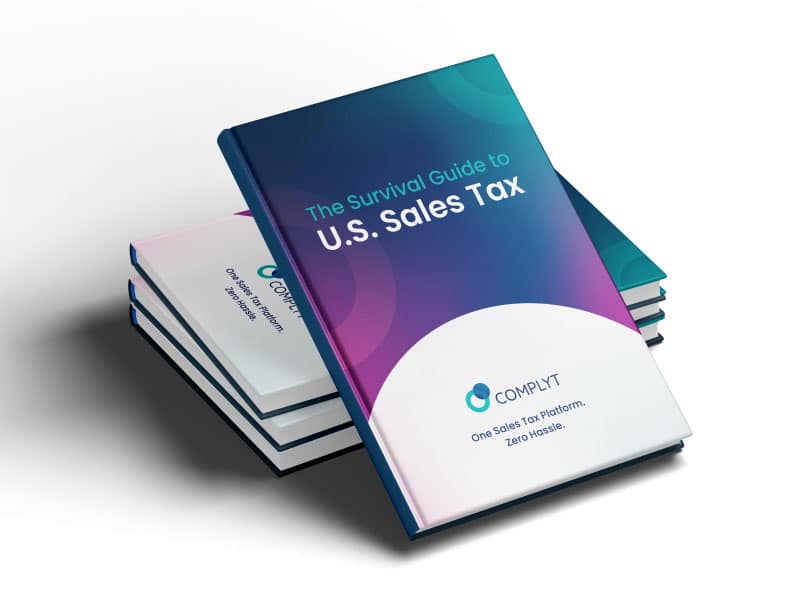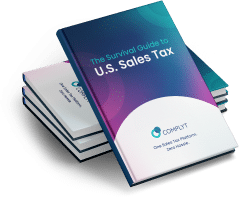Iowa’s sales tax can be as diverse as its agricultural landscape, from the fertile fields of the Mississippi River Valley to the rolling prairies of the Loess Hills. Like a skilled farmer reading the land, our guide will help you understand the nuances of Iowa’s sales tax laws and how they apply to your business.
So, put on your overalls and grab your pitchfork – we’re going to harvest some tax clarity and compliance together. With our guide in your back pocket, you’ll be confidently navigating the fields of Iowa’s sales tax, ready for a bountiful harvest of tax compliance success.
Sales tax is an essential aspect of doing business in any state. For businesses operating in Iowa, it’s crucial to understand the state’s sales tax regulations and how they apply to your company. This guide will help you navigate the sales tax landscape in Iowa, ensuring you stay compliant with the state’s tax laws.
What is the sales tax rate in Iowa?
In Iowa, the state sales tax rate is 6%, and local jurisdictions (cities and counties) can impose additional local sales tax rates, up to a maximum combined sales tax rate of 8%.
When should your business collect Sales Tax in Iowa?
Businesses are required to collect sales tax in Iowa if they have a physical presence or economic nexus in the state. A physical presence can include having a store, office, warehouse, or sales representatives in Iowa. An economic nexus is established when a business meets certain revenue or transaction thresholds, even without a physical presence in the state.
Iowa Physical Sales Tax Nexus
If your business has a physical presence in Iowa, you have a physical sales tax nexus and are required to collect sales tax on transactions within the state. This includes businesses with a brick-and-mortar store, office, or warehouse in Iowa.
Sales Tax Physical Nexus checklist for Iowa
- A physical office, store, or warehouse in the state.
- Employees, sales representatives, or agents conducting business activities in Iowa.
- Inventory or goods stored in the state.
- Attending trade shows, conferences, or events in Iowa.
If your business meets any of these criteria, you have a physical sales tax nexus in Iowa and must register with the Iowa Department of Revenue, obtain a sales tax permit, and start collecting sales tax.
Iowa Economic Nexus Threshold: Revenue, Thresholds, and Transactions
In Iowa, an economic sales tax nexus is established when a business meets certain revenue or transaction thresholds, even without a physical presence in the state. The state’s economic nexus law requires out-of-state sellers to collect sales tax if they have:
- Gross revenue from Iowa sales exceeding $100,000 in the current or previous calendar year.
- 200 or more separate transactions for the delivery of tangible personal property, services, or specified digital products into Iowa in the current or previous calendar year.
If your business meets either of these criteria, you have an economic sales tax nexus in Iowa and must register with the Iowa Department of Revenue, obtain a sales tax permit, and start collecting sales tax.
Which services are taxable in Iowa?
In Iowa, most tangible personal property is subject to sales tax, but some services are also taxable. Here’s a brief explanation of the services subject to sales tax in Iowa:
Taxable services: These are services subject to sales tax in Iowa, which include enumerated services listed in the Iowa Code and any services bundled with the sale of tangible personal property.
Nontaxable services: Services not specifically listed as taxable in the Iowa Code are generally not subject to sales tax.
Here are some examples of taxable services in Iowa:
- Repair, cleaning, alteration, or improvement of tangible personal property.
- Rental or leasing of tangible personal property.
- Laundry, dry cleaning, and pressing services.
- Furnishing of lodging or accommodations.
- Lawn care, landscaping, and tree trimming or removal.
- Pest control services.
- Sanitation and waste management services.
- Amusement and recreational services.
Iowa Sales Tax on Products: How to Calculate What Your Business Should be Charging
Calculating the sales tax on products in Iowa involves multiplying the sales price by the applicable sales tax rate. The total sales tax rate includes the state rate of 6% and any additional local sales tax rate, which can vary depending on the location of the sale.
For example, if you sell a product for $100 in a jurisdiction with a total sales tax rate of 7%, the sales tax amount is $7 ($100 x 0.07), making the total transaction amount $107.
To calculate the correct sales tax rate for a specific location, you can use the Iowa Department of Revenue’s online tax rate lookup tool or consult the department’s sales and use tax rate tables.
How much is Iowa clothing tax?
In Iowa, sales tax applies to the sale of tangible personal property, including clothing. The state sales tax rate is 6%, and local jurisdictions can impose additional local sales tax rates, up to a maximum combined sales tax rate of 7%. However, during Iowa’s annual sales tax holiday, certain clothing items are exempt from sales tax.
Do Iowa sales tax holidays affect clothing tax?
Yes, Iowa holds an annual sales tax holiday, typically on the first Friday and Saturday of August, during which certain clothing and footwear items are exempt from state and local sales tax. The exemption applies to items with a selling price of less than $100 per item. Some exceptions include accessories, special clothing or footwear primarily designed for athletic activity, and protective equipment.
During the sales tax holiday, qualifying clothing items are exempt from both the state sales tax rate of 6% and any applicable local sales tax rates.
Iowa Online Sales Tax: Are SaaS and Digital Services Taxable?
In Iowa, sales tax applies to the sale of specified digital products and certain digital services. Specified digital products include digital audio works, digital audio-visual works, and digital books. Digital services subject to sales tax include Software as a Service (SaaS), Infrastructure as a Service (IaaS), and Platform as a Service (PaaS).
SaaS Sales Tax Iowa: Does my SaaS Business Need to Charge Sales Tax in Iowa?
Yes, in Iowa, sales tax applies to Software as a Service (SaaS), Infrastructure as a Service (IaaS), and Platform as a Service (PaaS). Businesses providing these services are required to collect and remit Iowa SaaS sales tax on their sales to Iowa customers. Ensure that you have a sales tax permit and are charging the appropriate sales tax rates.
How can a business get a sales tax permit in Iowa?
To collect sales tax in Iowa, your business must first register with the Iowa Department of Revenue and obtain a sales tax permit. You can register online through the Iowa Taxpayer Access Point (TAP) or submit a paper application (Iowa Business Tax Registration form 78-005). There is no fee to obtain a sales tax permit in Iowa.
After registration, the Iowa Department of Revenue will provide you with a sales tax permit, and you’ll be required to file regular sales tax returns and remit any collected sales tax.
Collecting Sales Tax in Iowa as a Business
Once your business has a sales tax permit in Iowa, you must start collecting sales tax from your Iowa customers. Apply the appropriate sales tax rate to your sales transactions, including the state sales tax rate of 6% and any applicable local sales tax rates. You can use the Iowa Department of Revenue’s sales tax rate lookup tool to find the correct sales tax rate for a specific location.
When collecting sales tax, keep detailed records of your sales transactions, including the amount of sales tax collected, and regularly remit the collected sales tax to the Iowa Department of Revenue.
Iowa Tax Return Due Dates Explained
In Iowa, sales tax returns can be filed on a monthly, quarterly, or annual basis, depending on the amount of sales tax you collect. If you collect more than $120,000 annually, you must file monthly. If you collect between $6,001 and $120,000 annually, you can file quarterly. If you collect $6,000 or less annually, you can file annually.
Monthly returns are due by the 20th of the following month. Quarterly returns are due by the last day of the month following the end of the quarter. Annual returns are due by January 31st of the following year.


